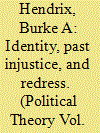| Srl | Item |
| 1 |
ID:
080637


|
|
|
|
|
| Publication |
2008.
|
| Summary/Abstract |
Conventional chronologies of the history of organised crime in America tend to focus on the arrival of large numbers of Italian immigrants in the 1890s as the catalyst for organised crime. However, analysis of the history of interactions between colonists and aboriginal peoples in North America suggests a much earlier incipience of organised criminal activity marked by the arrival of different groups of immigrants, namely, Dutch, French and British colonists to the American north-east. Drawing upon primary documents describing the practices of early trading companies and their representatives, as well as of later land transactions, the authors will present evidence and argument asserting not only a longer history of organised crime in North America but also an explanation for the inadequacy of the paradigm that governs much current organised crime and transnational organised crime research.
|
|
|
|
|
|
|
|
|
|
|
|
|
|
|
|
| 2 |
ID:
067398


|
|
|
| 3 |
ID:
158468


|
|
|
|
|
| Summary/Abstract |
The most widely accessible ideas and representations of Native Americans are largely negative, antiquated, and limiting. In this essay, we examine how the prevalence of such representations and a comparative lack of positive contemporary representations foster a cycle of bias that perpetuates disparities among Native Americans and other populations. By focusing on three institutions – the legal system, the media, and education – we illustrate how the same process that creates disparate outcomes can be leveraged to promote positive contemporary ideas and representations of Native Americans, thereby creating more equitable outcomes. We also highlight the actions some contemporary Native Americans have taken to reclaim their Native American identity and create accurate ideas and representations of who Native Americans are and what they can become. These actions provide a blueprint for leveraging cultural change to interrupt the cycle of bias and to reduce the disparities Native Americans face in society.
|
|
|
|
|
|
|
|
|
|
|
|
|
|
|
|
| 4 |
ID:
150514


|
|
|
|
|
| Summary/Abstract |
Native Americans have been structurally excluded from the discipline of political science in the continental United States, as has Native epistemology and political issues. I analyze the reasons for these erasures and elisions, noting the combined effects of rejecting Native scholars, political issues, analysis, and texts. I describe how these arise from presumptions inherent to the disciplinary practices of U.S. political science, and suggest a set of alternative formulations that could expand our understanding of politics, including attention to other forms of law, constitutions, relationships to the environment, sovereignty, collective decision-making, U.S. history, and majoritarianism.
|
|
|
|
|
|
|
|
|
|
|
|
|
|
|
|